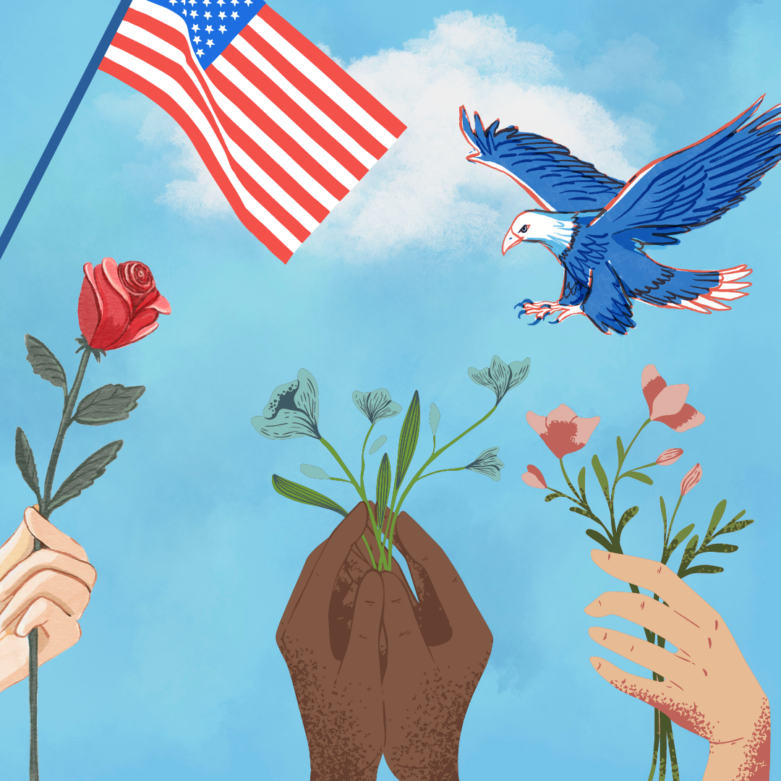The United States prides itself on the freedoms and rights it grants to its residents, both citizens and non-citizens alike. These rights are fundamental to the nation’s identity and democratic values. Two of the most fundamental rights that everyone living in the United States enjoys are the freedom of speech and the right to bear arms.
These are enshrined in the U.S. Constitution and are central to the nation’s democratic values, reflecting a commitment to individual liberty and self-determination.
Freedom of Speech

Freedom of speech is a cornerstone of American democracy. This is right, protected by the First Amendment to the U.S. Constitution, allows individuals to express themselves without fear of government retaliation or censorship. It encompasses a wide range of expressions, including spoken words, written communications, and symbolic actions.
The Scope of Freedom of Speech
Freedom of speech is not absolute. Certain types of speech, such as those that incite violence, are not protected. For instance, falsely yelling “fire” in a crowded theater, which could cause panic and harm, is not covered under this right.
Similarly, speech that constitutes libel or slander, which involves making false statements that harm another person’s reputation, is also not protected. Additionally, obscene material, threats, and speech that pose a clear and present danger are restricted. These limitations are essential to maintaining public order and protecting individuals from harm.
Why Is It Important?

The Founding Fathers considered freedom of speech essential for a healthy democracy. It enables public debate, encourages diverse opinions, and allows for criticism of the government. This, in turn, holds leaders accountable and prevents the abuse of power.
Without freedom of speech, society would be less open and more susceptible to tyranny and corruption. Furthermore, this right supports the free exchange of ideas, fostering an environment where innovation and progress can thrive. It is a vital mechanism for social and political change, enabling individuals to advocate for their rights and challenge injustices.
The Right to Bear Arms
The right to bear arms is protected by the Second Amendment to the U.S. Constitution. This right allows individuals to own and carry weapons for self-defense. It has been a subject of intense debate and numerous legal battles over the years, but it remains a fundamental right for those living in the United States.
Historical Context
The right to bear arms has its roots in the early days of the United States, when militias were essential for the nation’s defense. Over time, the interpretation of this right has evolved.
The landmark Supreme Court case, District of Columbia v. Heller (2008), clarified that individuals have the right to own firearms independent of service in a militia and can use them for lawful purposes, such as self-defense within their homes.
Legal Restrictions
While the right to bear arms is protected, there are several restrictions in place. For example, convicted felons and individuals with certain mental illnesses are prohibited from owning firearms.
Additionally, laws vary by state, with some states imposing stricter regulations on gun ownership and use. These measures aim to balance individual rights with public safety concerns.
The ongoing debate about gun control highlights the tension between maintaining personal freedom and ensuring community security.
Social and Political Implications of These Rights
The rights to free speech and to bear arms significantly impact American society and politics. Freedom of speech fosters an environment where ideas can be freely exchanged, leading to social progress and innovation. It also ensures that citizens can voice their opinions and advocate for change without fear of government suppression.
The right to bear arms, meanwhile, provides a sense of security and self-reliance, which is a deeply ingrained cultural value in the United States. Both rights are instrumental in shaping the American identity and democratic processes.
Personal Security and Defense
The right to bear arms provides individuals with a means of self-defense, contributing to a sense of personal security. However, it also raises concerns about public safety and the potential for gun violence.
The balance between protecting individual rights and ensuring public safety continues to be a contentious issue in the United States. Various stakeholders, including policymakers, law enforcement, and advocacy groups, continue to engage in debates and propose regulations to address these challenges.
Cultural Significance

Both rights are deeply ingrained in American culture and identity. They symbolize the country’s commitment to individual freedoms and personal responsibility. These rights also reflect the broader principles of liberty and democracy that the United States was founded upon.
The cultural importance of these rights is evident in public discourse, literature, and the arts, where themes of freedom and self-determination are frequently explored. They are celebrated as part of the nation’s heritage and continue to influence contemporary American life.
In Summary
The freedom of speech and the right to bear arms are two of the most important rights granted to everyone living in the United States. These rights are fundamental to the nation’s democratic principles and have profound implications for American society.
While they come with certain limitations and responsibilities, they remain vital to ensuring that the United States remains a free and open society.

